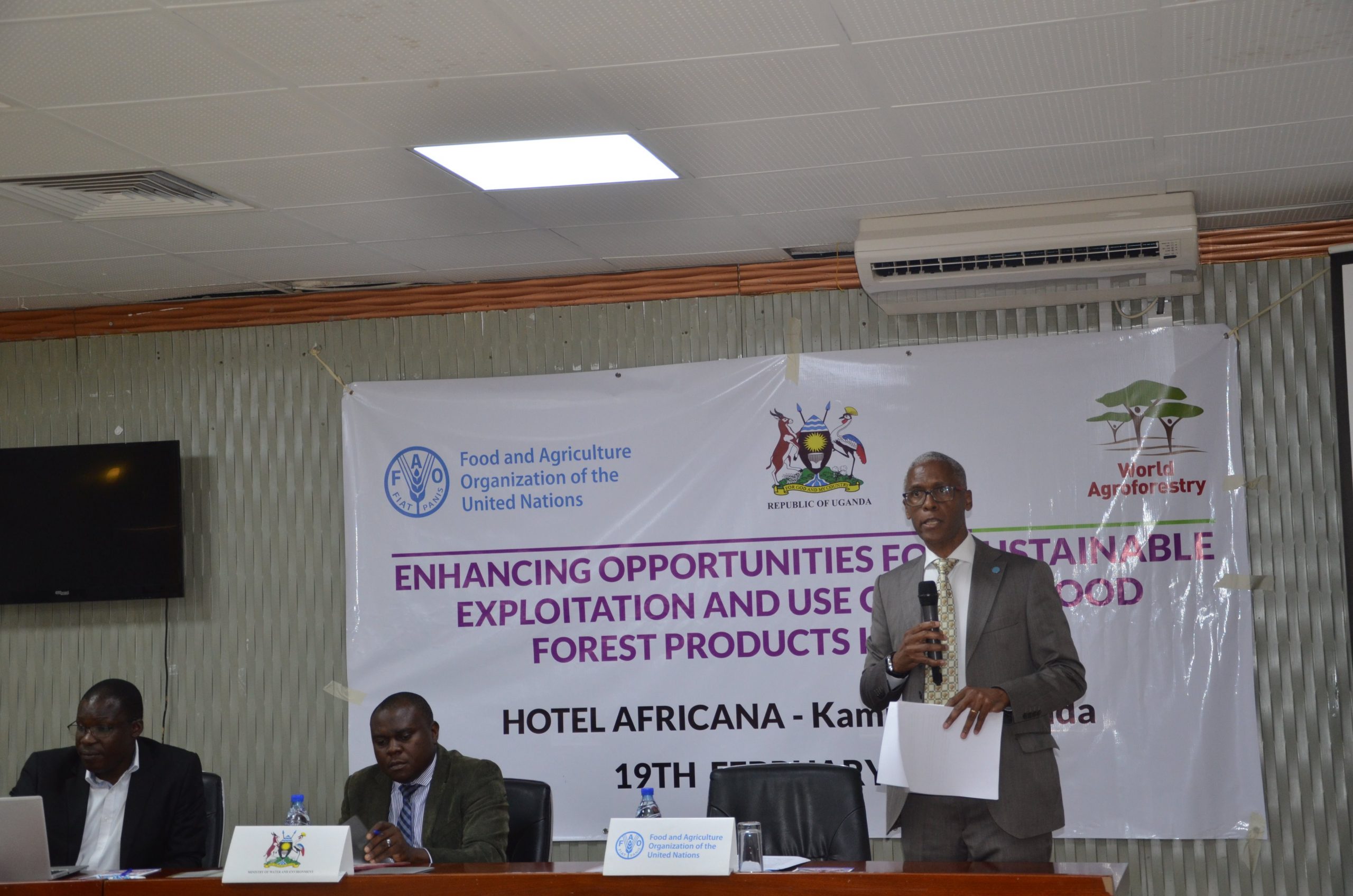
KAMPALA – The United Nations’ Food and Agriculture Organization (FAO), with the participation of the relevant stakeholders held a workshop on enhancing opportunities for sustainable exploitation and the use of non-wood forest products (NWFPs) to ensure food security.
Highlighting the importance of NWFPs, Antonio Querido FAO country representative in Uganda who opened the workshop held at Hotel Africana in Kampala said that Uganda has a wealth of NWFPs and that its sustainable use has the potential to build the resilience of refugees and host communities to shocks such as food insecurity among others.
The State of Uganda’s Forestry Report from 2016 suggests that in some parts of Uganda, the value of NWFPs is higher than wood products, yet they continue to be considered secondary aspects of forest management and land use planning.
“FAO believes that by training rural communities to add value to NWFPs, and exposing them to market opportunities for these products, refugees and host communities can increase their income security, Dr. Querido said, calling for more research and policy guidance to improve the value chain for NWFPs, especially those with high market potential.
The workshop that centered at honey and beeswax, shea butter (Vitellaria paradoxa), balanites oil (Balanites aegyptiaca) and the edible grasshopper Ruspolia differens, known in Uganda as “nsenene” gathered technical professionals coming from government, academia and humanitarian nutrition and food security sectors currently engaged in research, resilience-building programming aiming at fostering the dialogue and ensuring a shared understanding of the linkages between non-wood forest product, nutrition, and food security.
The vast majority of participants said that they were very satisfied with the training and that the project had great potential to change and increase household income and the conservation of biodiversity.
They were able to improve their understanding of basic concepts of non-wood forest products, and food security.
The workshop was jointly organized by FAO and the World Agroforestry Organization (ICRAF), to share with stakeholders, results from a study conducted by the two organizations, to identify ”Opportunities for building (NWFPs) value chains in the West Nile region of northwestern Uganda.
The study aimed to identify key forest and wild foods with the greatest potential to contribute to nutritious and healthy diets, and act as the basis of sustainable livelihoods and counter the degradation of forested and wooded landscapes.
Their findings suggest that non-wood resources make important contributions to the resilience of food systems “yet, they are often overlooked in rural development strategies, nutrition and resilience interventions and in land-use management and planning. The key aim of this project was to assess and begin to improve key NWFP value chains for the long-term aim of enhancing food and nutrition security, household incomes and biodiversity in the West Nile sub-region.
Dr. Querido said that with adequate training and integration of NWFPs in forest management, land-use planning, nutrition and livelihood interventions, NWFPs have the potential to make a greater contribution to nutrition and food security, particularly dietary diversity, as well as increased household income and the conservation of biodiversity.
He also retaliated FAO’s commitment to work with the government and other partners to raise awareness among local collectors and civil society on the value of NWFPs.
A closing discussion brought to light the important contribution NWFPs can make to building resilience directly by adding vital nutrients and diversity to diets, and indirectly as the basis of sustainable livelihoods.





